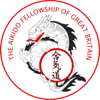FAQ
What is Aikido?
Aikido is a purely defensive Japanese martial art. One does not attack or counter attack; one blends with the attacker in order to make one fluid motion. This allows the defender firstly to control the attacker and secondly to apply an Aikido technique: either a projection (throw) or immobilisation (locking/pinning move).
As one studies Aikido, one understands that Aikido is not purely a form of self-defence; it is about self-discipline and self-control.
Aikido is a true skill and takes a lifetime to master.
The translation of Aikido out of the Japanese is confusing. Ai-Ki-Do equates to Harmony-Spirit-Way or Path. A simple definition would be The Way of Spirit through Harmony.
Am I too old?
Aikido is one of those martial arts that can be adjusted to any age group. You may not have some of the techniques applied to you but you should be able to do the techniques on others.
I have physical issues…
We have taught students who are registered blind, registered deaf, suffering from various forms of autism, sufferers from muscular sclerosis to name but a few. Other issues such as bad backs, poor knees etc (issues common to everyday life) we can accommodate. Talk us through your worries/concerns and we can manage your expectations.
I've got lots of reasons why I can't practice!
Aikido is not for everyone but there are virtually no limits as to who can practice. Physical limitations may limit the level of practice. The lessons are geared to build self-confidence. You can come and talk to an instructor during any of the classes.
What about competitions and fighting?
Traditional Aikido has no competitions or sparring. You are trying to improve yourself but not at the expense of someone else.
What about weaponry?
Aikido is based historically on the movements of weapons. Weapons work is still practised but the emphasis is on movement. Through the movements of the sword and the stick, one learns the nuance of movement and control.
What about the quality of the teaching?
All Aikido Instructors within the Aikido Fellowship of Great Britain (AFGB) are qualified to Coach Level 1 as a minimum and are reviewed annually by a Coach Level 3 Senior Coach annually. In addition, they are AFGB Teacher qualified. All Aikido Assistant Instructors are also qualified to Coach Level 1. The AFGB is a Member Association of the Aikido Alliance UK.
What do you recommend I do?
We are passionate about what we teach and the benefits we get from practising. We currently have clubs in Fleet, Aldershot and Perry Barr, Birmingham. Please contact the Association via email ([email protected]) for more details of practice times. We always like people to come and watch part or all of a session to see if it is what they are looking for. It’s free to watch and generally the Instructor or an Assistant Instructor will spend time answering any questions you may have.
